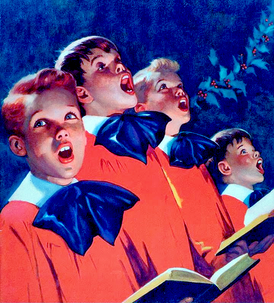
 STILL REMEMBER THE DAY I walked into Our Lady Queen of Peace Catholic School on the first day of my sixth grade year. Our family had recently relocated from southern Oklahoma to Illinois. I had never attended a Catholic school before then, and while my family took the Faith very seriously, attending Mass during the week was a new experience for me.
STILL REMEMBER THE DAY I walked into Our Lady Queen of Peace Catholic School on the first day of my sixth grade year. Our family had recently relocated from southern Oklahoma to Illinois. I had never attended a Catholic school before then, and while my family took the Faith very seriously, attending Mass during the week was a new experience for me.
Within the first month of school, our pastor, Fr. James Flach, called all of the 4th, 5th, 6th, 7th and 8th graders together and made it known that the parish was in need of new organists and that he would personally pay for organ lessons for any student who wished to play—in the hopes that one would become an organist. Well… I am that one.
I played the organ during Mass for the first time on the Feast of the Guardian Angels and have been at it ever since. Today I am the one teaching children and hoping that at least of few will follow in the footsteps of a sacred musician. 1

 SOMETIMES I FEEL we forget about the formation of our children in the grand tradition of sacred music. At the same time, I wonder if some of our many wonderful musicians aren’t a little afraid to stand in front of a room full of children for the first time and raise the baton. I can’t claim to be Olivier Latry at the organ or Sir Richard Terry leading a smart group of choristers through Byrd’s Mass for Five Voices, but there are few people who love working and training choristers more than I do. I am honored to begin blogging at Views from the Choir Loft and desire to pass on the little I have learned to those toiling away in their work with young children.
SOMETIMES I FEEL we forget about the formation of our children in the grand tradition of sacred music. At the same time, I wonder if some of our many wonderful musicians aren’t a little afraid to stand in front of a room full of children for the first time and raise the baton. I can’t claim to be Olivier Latry at the organ or Sir Richard Terry leading a smart group of choristers through Byrd’s Mass for Five Voices, but there are few people who love working and training choristers more than I do. I am honored to begin blogging at Views from the Choir Loft and desire to pass on the little I have learned to those toiling away in their work with young children.
I will be contributing each week on the subject of “HOW TO PROPERLY TRAIN YOUNG VOICES TO SING AT MASS.”
To learn about Dr. Lucas Tappan, our newest contributor, visit his biography page.

NOTES FROM THIS ARTICLE:
1 That sounds a little grand. Perhaps it would be better to say a musician in the field of sacred music!
